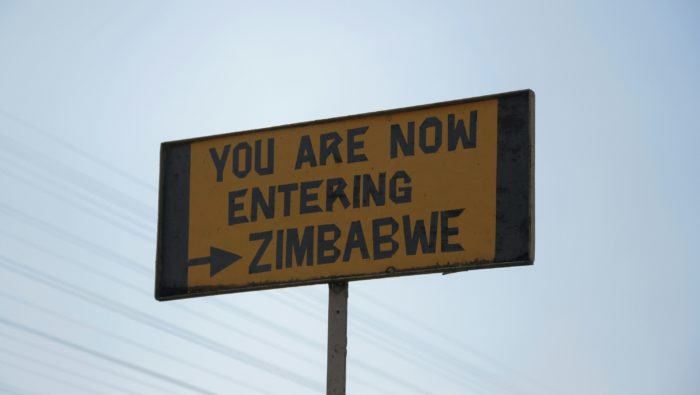
Lawmaking as a ‘box-ticking exercise’: A Socio-Legal approach to the making of Zimbabwe’s Cyber and Data Protection Act 5 of 2021

In 2013, Zimbabwe enacted a new constitution after a successful robust public consultative and engagement process. Using a Socio-Legal lens, which entails examining the role of the public consultation process from a non-legal scholar’s perspective, I explored the making of the Zimbabwean Cyber and Data Protection Act 2021 as part of my PhD study.
I conducted over 8 months of field research, investigating the interests of different stakeholders involved in the lawmaking process. Using a stratified sampling technique, I identified the main stakeholders in the lawmaking process and conducted 26 semi-structured interviews in person and online. These interviews included the stakeholders and the public from rural and marginalised communities that participated in the consultation process. In Zimbabwe, the public consultation process is open to the general public and conducted at town hall meetings (in contrast, in Zambia, public consultation is on an invitation-only basis to those the legislature considers stakeholders). However, I argue that public consultation in Zimbabwe is a façade in attempting to democratise the law-making process, it draws to a performance of an essentially political process. Scholars such as Gluhovic, Jestrovic, Rai, and Saward capture the various traditions of how politics and performance are interconnected in the their 2021 Handbook.
My findings suggest that participants in these public hearings were mostly bussed in by the ruling party and talked about the Arab Spring and how the Internet provided a bad space for political discourse. Some of the participants in remote areas, such as Lupane, stated that regulating the Internet was important to maintaining peace in the country. They feared that if left unregulated, it could lead to political violence, as witnessed during the Arab Spring. Scholars such as Adam Smidi and Saif Shahin argued that most research on the Arab Spring contends that social media enabled or facilitated the protests by providing a voice to people in societies with mostly government-controlled legacy media. Thus, the public participation conversations ended up being more about under-regulation of the Internet rather than promoting cyber security and creating safe online spaces.
Interview data also highlighted a concerning aspect of the public hearing process: the targeting of rural and marginalised communities. These communities in Zimbabwe often do not have internet access (34.8 % Internet penetration in 2023) and therefore lack an understanding of digital rights and cyber security. The strategic placement of hearings in remote regions raises questions about the government’s intentions to gather genuine feedback. Additionally, interviewees noted that the ruling party frequently organised transportation for supporters to attend hearings, potentially influencing the outcome. Contrary to my findings on public hearings being held in rural and marginalised areas of the country, the majority of the country’s population lives in rural areas and delineates that most hearings be held in these remote areas. Yet it is not the marginalised local residents who attend, rather, it is the bussed-in ruling party members that attend.
One of the public hearing participants said: ‘I think it was strategic from a government perspective because they knew very well there was not going to be meaningful feedback that would come from those public hearings.’
While my initial assumptions reveal that public consultations were held in places without internet connectivity thereby involving citizens who may not comprehend digital rights and cybersecurity issues, I argue that the absence of internet connectivity alone should not bar citizens from participating in public consultations, since it is a form of enabling democratic participation.
My findings revealed unexpected insights into the role of the ruling political party during public consultations. Observations relayed by interviewees revealed that political parties such as the ruling ZANU PF deployed members to disrupt meaningful engagement or criticism of any bill in meetings. In an interview, one of the participants in the public consultations stated that: ‘You would find that the political party, especially the ruling party, would send people in buses and combis (minibuses) to attend public hearings. And these people would just come and talk about the Arab Springs and talk about how you know the Internet is a very bad space.’ Although there were no violent disruptions during the public hearings of the Cyber and Data Protection Bill, as was the case with the recent Private Voluntary Organizations Bill in Zimbabwe, the disruption came in the form of not enabling meaningful engagement.
These findings point to the continued Executive dominance in the lawmaking process through the Cabinet Committee of Legislature and that public hearings perfectly perform a democratic lawmaking process, which is nowhere close to that reality. The public consultation process relating to lawmaking in Zimbabwe is a performance catering to the political elite through town hall meetings that do not yield any results. It thus shows the interconnectedness of politics and performance in the box-ticking exercise of making Zimbabwean legislation. Michael Foucault emphasised a view of the political as the circulation of power in society and regulation of the everyday as governmentality. My findings reflect that the public hearings set the ‘stage’ for a performance with a political end whose audience may not eventually be beneficiaries. The ruling elite maintains their dominance and interests by creating the ‘staged’ performance. According to Erving Goffman, the reiterative process at the heart of every performance regulates and shapes social relationships from the individual to the collective. Thus, politics is a performance even during the lawmaking stage.

